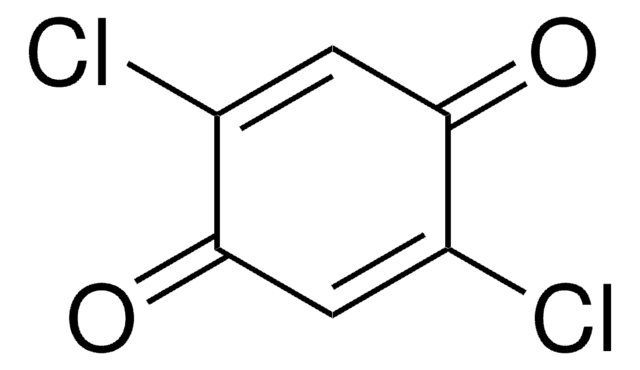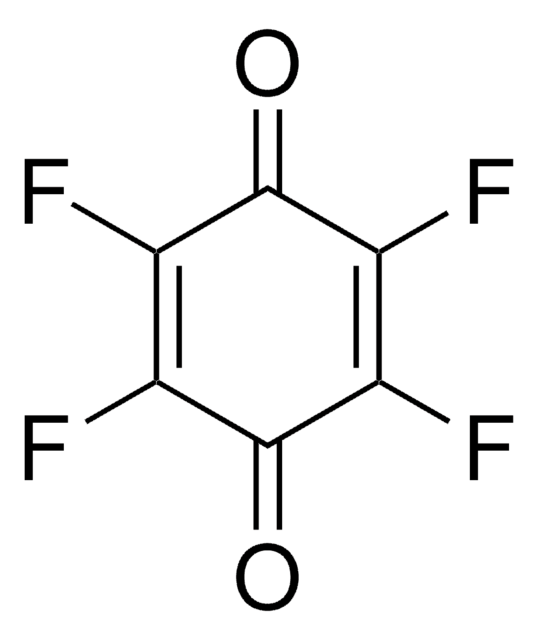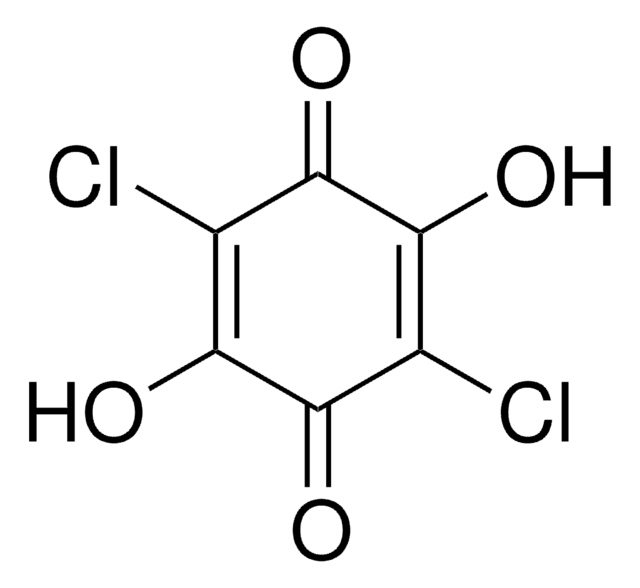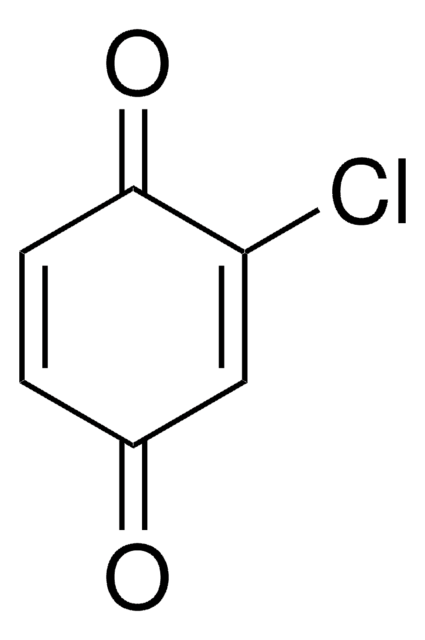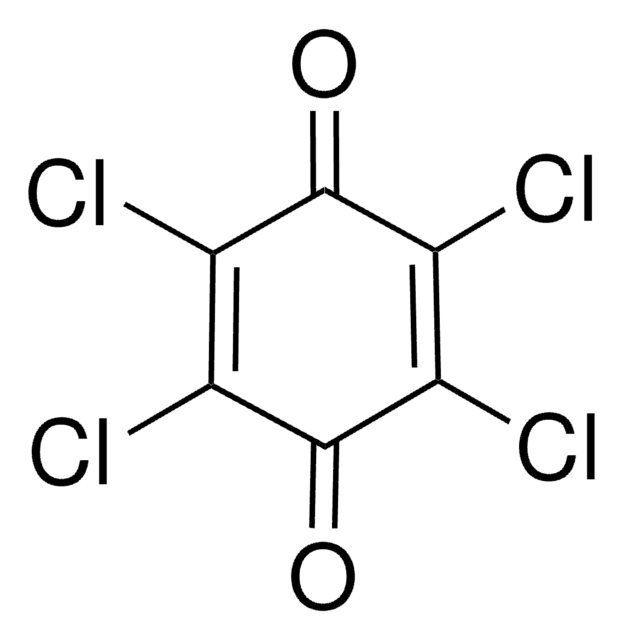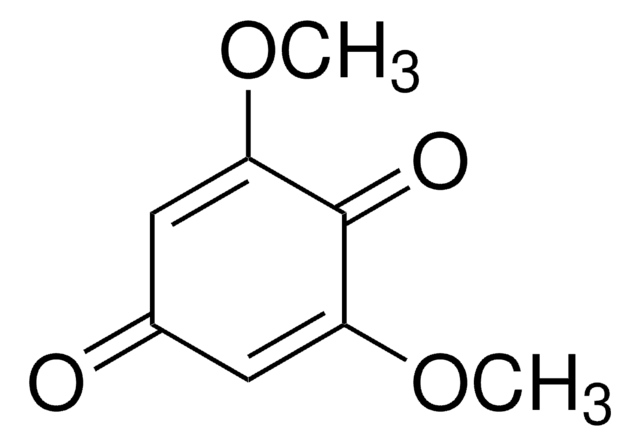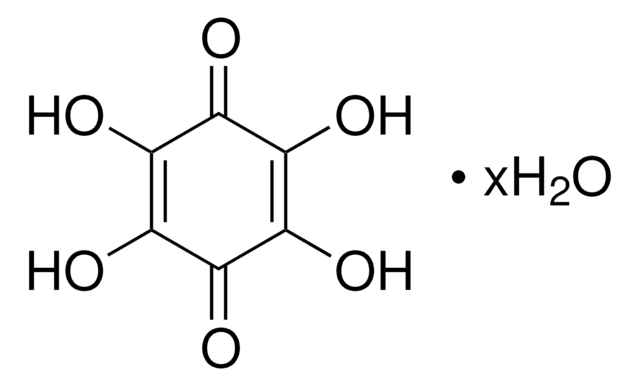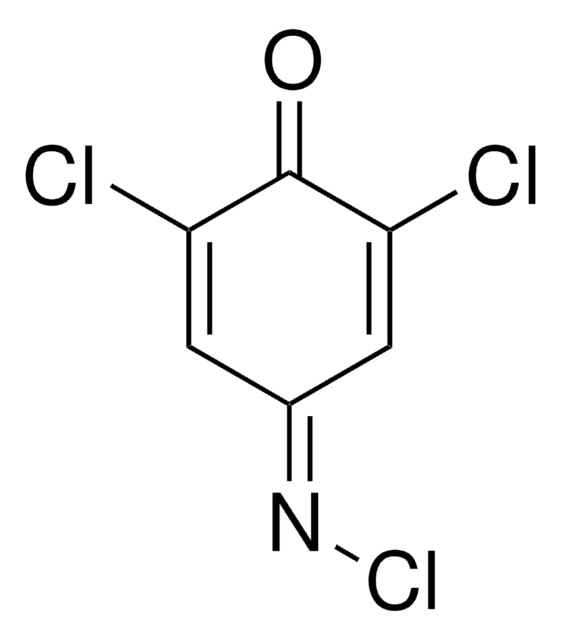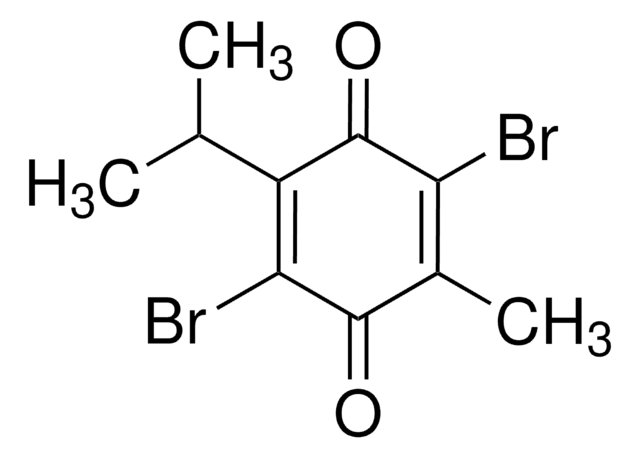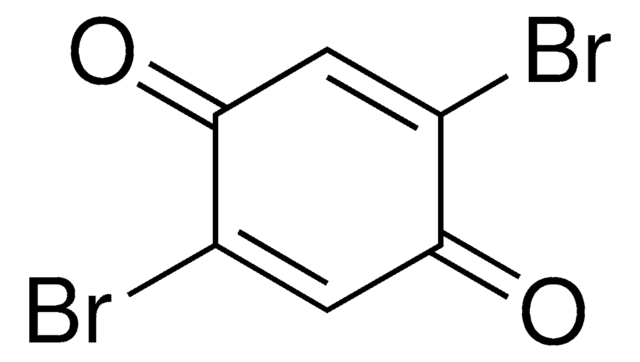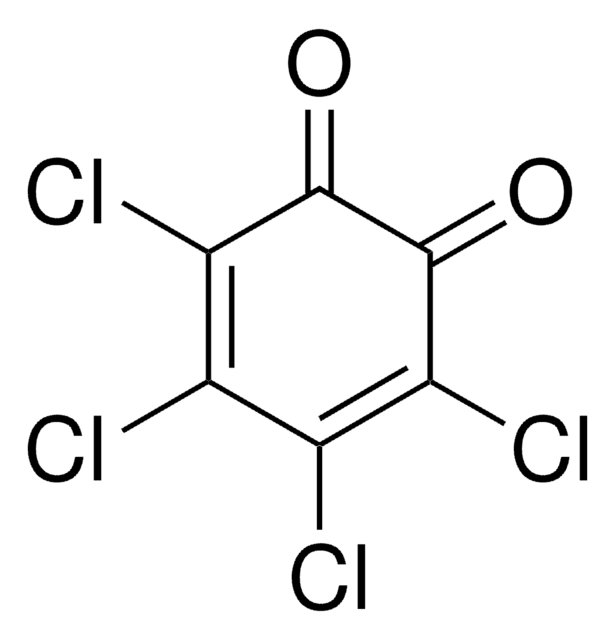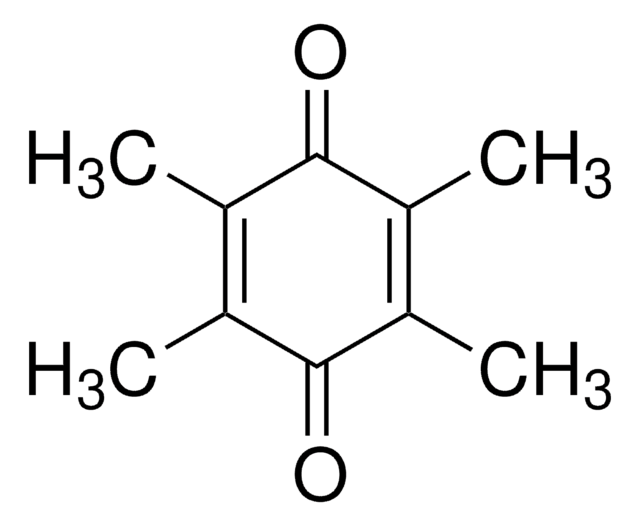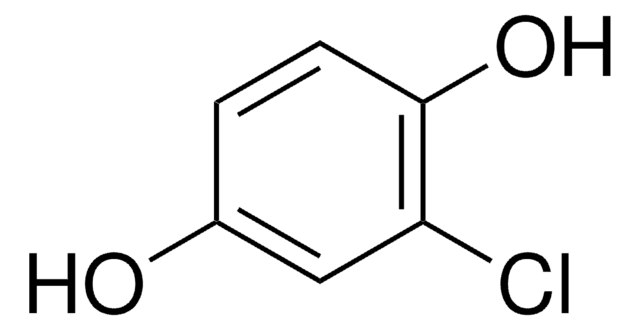431982
2,6-Dichloro-1,4-benzoquinone
98%
Sinonimo/i:
2,6-Dichloro-2,5-cyclohexadiene-1,4-dione, 2,6-Dichloro-p-benzoquinone, 2,6-Dichlorobenzoquinone, 2,6-Dichloroquinone
Autenticatiper visualizzare i prezzi riservati alla tua organizzazione & contrattuali
About This Item
Formula empirica (notazione di Hill):
C6H2Cl2O2
Numero CAS:
Peso molecolare:
176.98
Numero CE:
Numero MDL:
Codice UNSPSC:
12352100
ID PubChem:
NACRES:
NA.22
Prodotti consigliati
Saggio
98%
Punto di fusione
122-124 °C (lit.)
Stringa SMILE
ClC1=CC(=O)C=C(Cl)C1=O
InChI
1S/C6H2Cl2O2/c7-4-1-3(9)2-5(8)6(4)10/h1-2H
JCARTGJGWCGSSU-UHFFFAOYSA-N
Categorie correlate
Descrizione generale
2,6-Dichloro-1,4-benzoquinone (DCBQ, 2,6-DCBQ) is a halobenzoquinone. Halobenzoquinones are disinfection byproducts (DBPs) found in drinking water. They are capable of producing reactive oxygen species and causing oxidative damage to proteins and DNA in T24 human bladder carcinoma cells. UV-induced transformation of DCBQ in drinking water has been reported. Detection of DCBQ in drinking water by liquid chromatography-ESI tandem mass spectrometry has been reported.
Applicazioni
2,6-Dichloro-1,4-benzoquinone is the suitable reagent used to in a study to evaluate the diffusion coefficients (D) for a family of quinones, nitroaromatics, ferrocenes and aromatic hydrocarbon compounds, in acetonitrile by single potential step chronoamperometry. It may be used in the preparation of :
- 2,3,5-Trichloro-1,4-dihydroquinone
- 2,3,5-trichloro-1,4-benzoquinone
- 2,6-Dichloro-1,4-dihydroquinone
Avvertenze
Warning
Indicazioni di pericolo
Consigli di prudenza
Classi di pericolo
Eye Irrit. 2 - Skin Irrit. 2 - STOT SE 3
Organi bersaglio
Respiratory system
Codice della classe di stoccaggio
11 - Combustible Solids
Classe di pericolosità dell'acqua (WGK)
WGK 3
Punto d’infiammabilità (°F)
Not applicable
Punto d’infiammabilità (°C)
Not applicable
Dispositivi di protezione individuale
dust mask type N95 (US), Eyeshields, Gloves
Scegli una delle versioni più recenti:
Possiedi già questo prodotto?
I documenti relativi ai prodotti acquistati recentemente sono disponibili nell’Archivio dei documenti.
I clienti hanno visto anche
Jinhua Li et al.
Toxicological sciences : an official journal of the Society of Toxicology, 141(2), 335-343 (2014-05-09)
Halobenzoquinones (HBQs) are a new class of drinking water disinfection byproducts (DBPs) and are capable of producing reactive oxygen species and causing oxidative damage to proteins and DNA in T24 human bladder carcinoma cells. However, the exact mechanism of the
Kai He et al.
Journal of hazardous materials, 351, 98-107 (2018-03-10)
Anthropogenic compounds accidentally released to the environment could be important precursors of disinfection byproducts (DBPs) in drinking water treatment processes. In this study, the haloacetic acid formation potentials (HAAFPs) of 155 anthropogenic compounds listed on the Japanese pollutant release and
A Magnuson et al.
Biochemistry, 36(11), 3254-3261 (1997-03-18)
The binding of Mn2+ to manganese-depleted photosystem II was investigated after chemical modification of histidyl and carboxylic acid residues in the presence or absence of the native manganese cluster. K(M) values for Mn2+ were determined from steady-state electron transfer between
Masako Iwai et al.
Photosynthesis research, 87(3), 313-322 (2006-05-16)
PS II-H is a small hydrophobic protein that is universally present in the PS II core complex of cyanobacteria and plants. The role of PS II-H was studied by directed mutagenesis and biochemical analysis in the thermophilic cyanobacterium Thermosynechococcus elongatus
A toxic disinfection by-product, 2,6-dichloro-1,4-benzoquinone, identified in drinking water.
Feng Qin et al.
Angewandte Chemie (International ed. in English), 49(4), 790-792 (2009-12-22)
Il team dei nostri ricercatori vanta grande esperienza in tutte le aree della ricerca quali Life Science, scienza dei materiali, sintesi chimica, cromatografia, discipline analitiche, ecc..
Contatta l'Assistenza Tecnica.